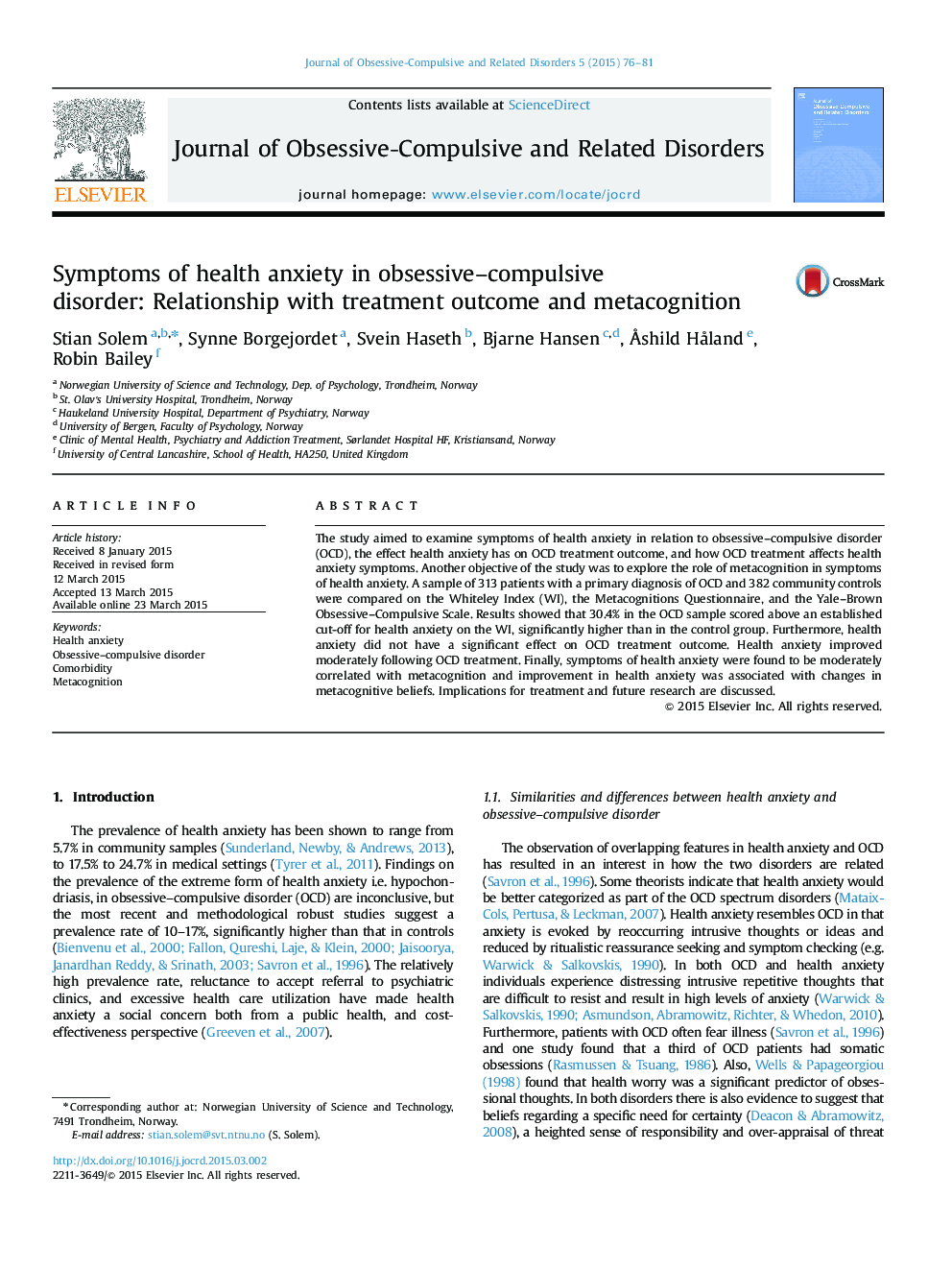| Article ID | Journal | Published Year | Pages | File Type |
|---|---|---|---|---|
| 912288 | Journal of Obsessive-Compulsive and Related Disorders | 2015 | 6 Pages |
•Symptoms of health anxiety are common in OCD and more prevalent than in controls.•Symptoms of health anxiety do not preclude OCD treatment gains.•Symptoms of health anxiety are reduced and normalized after OCD treatment.•Metacognitive beliefs are significantly related to health anxiety symptoms in OCD patients.•Changes in metacognitions correlate with changes in symptoms.
The study aimed to examine symptoms of health anxiety in relation to obsessive–compulsive disorder (OCD), the effect health anxiety has on OCD treatment outcome, and how OCD treatment affects health anxiety symptoms. Another objective of the study was to explore the role of metacognition in symptoms of health anxiety. A sample of 313 patients with a primary diagnosis of OCD and 382 community controls were compared on the Whiteley Index (WI), the Metacognitions Questionnaire, and the Yale–Brown Obsessive–Compulsive Scale. Results showed that 30.4% in the OCD sample scored above an established cut-off for health anxiety on the WI, significantly higher than in the control group. Furthermore, health anxiety did not have a significant effect on OCD treatment outcome. Health anxiety improved moderately following OCD treatment. Finally, symptoms of health anxiety were found to be moderately correlated with metacognition and improvement in health anxiety was associated with changes in metacognitive beliefs. Implications for treatment and future research are discussed.
